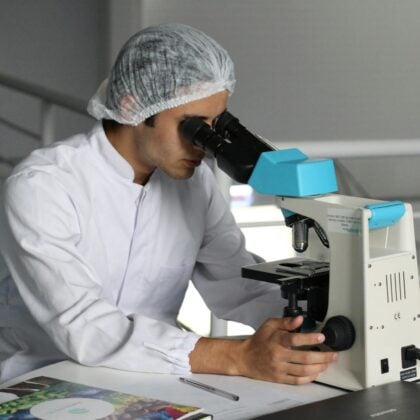
The presence of gas in the digestive tract has two origins: gases (nitrogen, oxygen and carbon dioxide) from the air swallowed during swallowing and gases (hydrogen and methane) produced by the intestinal flora during digestion. This gas production is a healthy phenomenon and does not indicate a health problem in most cases, an adult person can produce up to 1.5 litres of gas per day.
However, in specific cases, thehe production of gas increases and becomes a nuisance in everyday lifeThis results in flatulence, bloating and abdominal pain.
This overproduction of gas can be a sign of health problems, and some of the most common causes are
- Diseases of the digestive system Irritable bowel syndrome, which is most often caused by stress and is often found in nervous people, coeliac disease, inflammatory bowel diseases (Crohn's disease, etc.), acute intestinal obstruction and constipation.
- Long-term use of certain types of antibiotics.
- Certain types of food such as beans, starches and cabbage increase the production of intestinal gas due to their high starch and protein content. The breakdown of proteins into amino acids takes place in the presence of intestinal bacteria, resulting in nitrogenous waste.
Lactose intolerance
There is also a stomach ache or the presence of bloating which show the hyperproduction of gas in case oflactose intolerance complex sugars in milk and milk products (lactose) do not break down into simple sugars (glucose and galactose), the lactase is the main cause. This bloating can be associated with abdominal pain and even diarrhoea and vomiting.
The lactose poorly digested undergoes bacterial fermentation in the colon responsible for hyperproduction of gas, the quantity of gas produced depends on the degree of lactase deficiency and the quantity ingested.
The decrease in gas emission after elimination of dairy products for a few days can be considered as strong evidence of lactose intolerance, but the consultation with a specialist doctor is still essential to confirm the diagnosis with certainty, by carrying out the necessary tests.
It is also possible to take tablets containing the enzyme lactase as proposed by Lactolerance.

Hello, I'm Vincent
Like you, I'm lactose intolerantI know exactly what you're going through and the difficulties you encounter on a daily basis. For over 10 years, I've been helping our customers to use our dietary supplements and giving advice and tips on how to improve their digestive comfort. I'm also a keen cook and gourmet, so you'll find my favourite recipes for a lactose-free diet in this blog.
Lactose intolerance is not inevitable! With LACTOLERANCE you can digest with complete peace of mind






